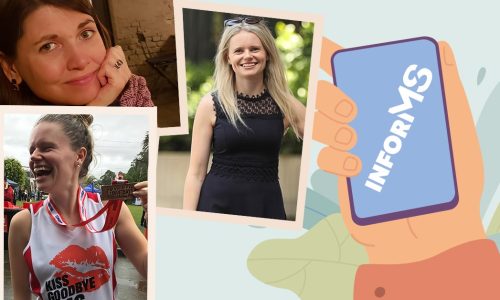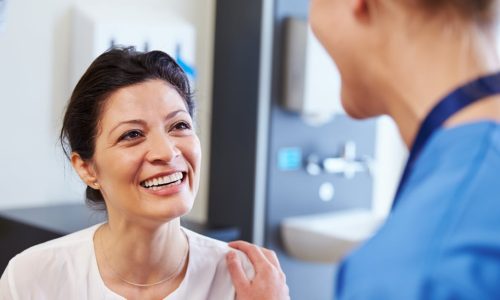The final day of what has been an incredibly busy but enormously inspiring conference – packed with great science, but also productive meetings building international collaborations.
The last day of the conference is reserved for exciting “Late Breaking News”, awards, the Charcot Lecture and a final round-up of highlights – a challenging job for the four speakers tasked with that role!
Late Breaking News
The most exciting highlight in this session was the presentation by Robert Fox of the very exciting early analysis of results of the SPRINT-MS phase II clinical trial in which the repurposed oral drug, Ibudilast, was tested in secondary and primary progressive MS. The trial showed that ibudilast could reduce brain atrophy by 48% over the two-year period of the trial in comparison with placebo. Another advanced MRI imaging technique also provided some evidence that ongoing myelin and nerve damage was reduced. Further analysis of the trial results is ongoing, and we look forward to seeing them published in due course, and in the coming days, we will write a report focusing solely on this trial.
Evidence of lymphatic drainage in the human brain
Dr Reich using both advanced brain imaging techniques and microscopy, provided a beautiful demonstration of the long-sought lymphatic drainage system in the brain. Two years ago, for the first time, the lymphatic system, which provides a route for immune cells and waste to drain from tissues, was shown to exist in rodent brains. Now we have evidence for its existence in the membranes that surround the human brain. This provides important understanding of how immune cells may circulate and exit from the brain. Whether and how it plays a role in the biology of MS, however, has yet to be demonstrated.
Treatment of paediatric MS
Dr Chitnis presented the excellent results of the first-ever phase III clinical trial of a disease-modifying medication for paediatric MS. Up until now, the MS medications approved for use to treat adults were used ‘off-label’ in children with MS, leaving doctors, parents and patients uncertain of the best treatments and the safety of the medications in children. The trial showed that fingolimod (Gilenya) is very effective in children with MS, reducing relapses by just over 80%, lesions by 50% and greatly reducing the risk of disability accumulation compared to interferon-beta. The trial did not reveal any new or concerning safety issues for the use of the drug in children.
Neurofilament as a biomarker
Maria Pia Sormani demonstrated that neurofilament proteins in the blood provide a very effective biomarker for tracking treatment responses. Neurofilaments are only found inside nerve cells and are only released into the blood when there is damage to the central nervous system. Her team’s work has shown that neurofilaments levels in the blood at 6 months following treatment can accurately reflect the effect of treatment on lesions and disability accumulation at two years, indicating that using neurofilaments is feasible to design shorter, smaller clinical trials for MS medications.
Novel treatment approach trialled
A trial of the first agent targeting a type of virus that resides within our own DNA and has been linked to MS, known as HERV-W, was disappointingly negative in terms of its effects on relapses and disability but provided an intriguing hint that there may be some stimulation of myelin repair going on. Again, the analysis of these trial results is still ongoing with longer follow-up data still to come.
Awards
It was wonderful to see young Australian researcher Adam Fambiatos, who works with the MSBase Registry team in Melbourne, winning one of the five awards for young Investigator Poster presentations for his work looking at the factors that might predict the development of secondary progressive MS.
I had been honoured to be a part of the panel convened by the MS International Federation’s International Medical and Scientific Board (IMSB) to judge the oral presentations for the MSIF Young Investigator Award. It was an exceptionally challenging job, but a very deserving winner, Charline Benoit was selected for her work on the role that the microglial cells of the brain play in the enlargement of lesions in the brain.
Professor Xavier Montalban, Co-Chair of the MSIF IMSB, was also awarded honorary membership of ECTRIMS for his long service in many roles in the European and international MS research sphere.
Professor Per Soelberg Sorensen was the very deserving recipient of the MSIF Charcot Award for lifetime achievement in MS research. His work on the antibodies that the body produces in response to interferon-beta treatment, known as neutralising antibodies, which can block the efficacy of the treatment, led to new clinical guidelines for the use of interferon medications and adjusting treatment to avoid these complications. He has also been and continues to be a great champion of the use of combination therapies to increase the chances of successful treatment in MS in similar ways to that achieved in HIV and cancer.
Wrapping up
In summarising the clinical and scientific highlights of the conference Robert Fox, Alistair Coles, Eric Green and David Laplaud all covered areas that indicate we are doing well and will do better at treating relapsing MS, we are making progress towards treating progressive MS. Options for repair and regeneration are opening up and our ability to design clinical trials that will increase our chances of success and will also improve our understanding of the biology MS is enormously improved.
It has been a great privilege to be able to attend this conference and bring the highlights to the Australian community. The knowledge and the collaborations developed will inform our own work at MS Research Australia, to keep pushing forward towards the prevention, better treatment and cure of MS.







